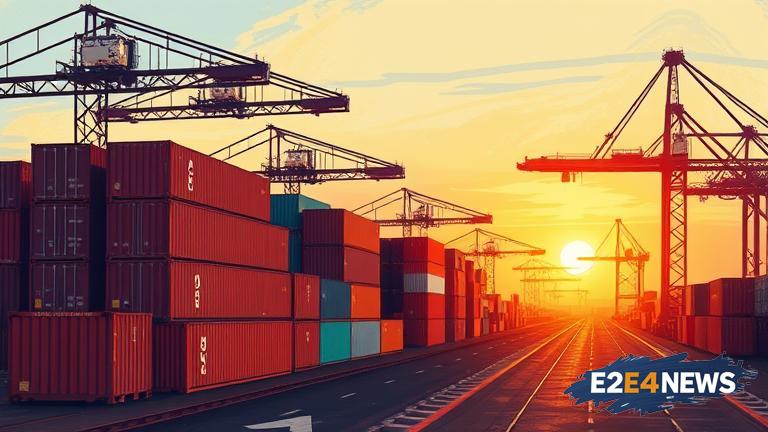The world of international trade is constantly evolving, with new trends and developments emerging every day. One of the hottest topics in international trade is the ongoing trade tensions between the US and China, which have been escalating over the past few years. The US-China trade war has had far-reaching implications for businesses and economies around the world, with many companies struggling to navigate the complex landscape of tariffs and trade restrictions. Another key area of focus is the growing importance of trade agreements, such as the US-Mexico-Canada Agreement (USMCA) and the Comprehensive and Progressive Agreement for Trans-Pacific Partnership (CPTPP). These agreements aim to reduce trade barriers and promote economic cooperation between participating countries. However, the negotiation and implementation of these agreements can be complex and time-consuming, requiring careful consideration of issues such as tariffs, quotas, and regulatory frameworks. In addition to trade agreements, regulatory updates are also playing a major role in shaping the international trade landscape. For example, the US has recently introduced new regulations aimed at restricting the export of certain technologies to countries such as China and Russia. These regulations have significant implications for businesses involved in the export of these technologies, and highlight the need for companies to stay up-to-date with the latest regulatory developments. The EU has also been active in introducing new trade regulations, including the recently introduced EU Conflict Minerals Regulation. This regulation aims to reduce the risk of human rights abuses in the extraction and trade of certain minerals, and requires companies to carry out due diligence on their supply chains. Furthermore, the growth of e-commerce has also been a major driver of international trade, with more and more businesses turning to online platforms to reach new customers and expand their global reach. However, the rise of e-commerce has also raised concerns about issues such as customs compliance, tax evasion, and intellectual property protection. To address these concerns, governments and regulatory bodies are introducing new measures aimed at promoting fair trade practices and protecting consumers. For instance, the US has introduced new rules requiring e-commerce platforms to collect and remit sales taxes on behalf of third-party sellers. Similarly, the EU has introduced new regulations aimed at reducing the risk of tax evasion and ensuring fair competition in the digital economy. Despite these challenges, international trade remains a vital component of the global economy, with many businesses relying on exports to drive growth and profitability. To succeed in this complex landscape, companies need to stay informed about the latest developments and trends, and be prepared to adapt to changing regulatory requirements and market conditions. This requires a deep understanding of the global trade landscape, as well as the ability to navigate complex regulatory frameworks and trade agreements. By staying ahead of the curve and anticipating emerging trends and developments, businesses can unlock new opportunities and drive growth in the global marketplace. The importance of international trade cannot be overstated, with the World Trade Organization (WTO) estimating that international trade accounts for around 60% of global GDP. As the global economy continues to evolve, it is likely that international trade will play an increasingly important role in driving growth and prosperity. However, this will require governments, regulatory bodies, and businesses to work together to promote fair trade practices, reduce trade barriers, and address emerging challenges such as climate change and sustainable development. In conclusion, the landscape of international trade is complex and constantly evolving, with new trends and developments emerging every day. By staying informed and adapting to changing regulatory requirements and market conditions, businesses can unlock new opportunities and drive growth in the global marketplace.
